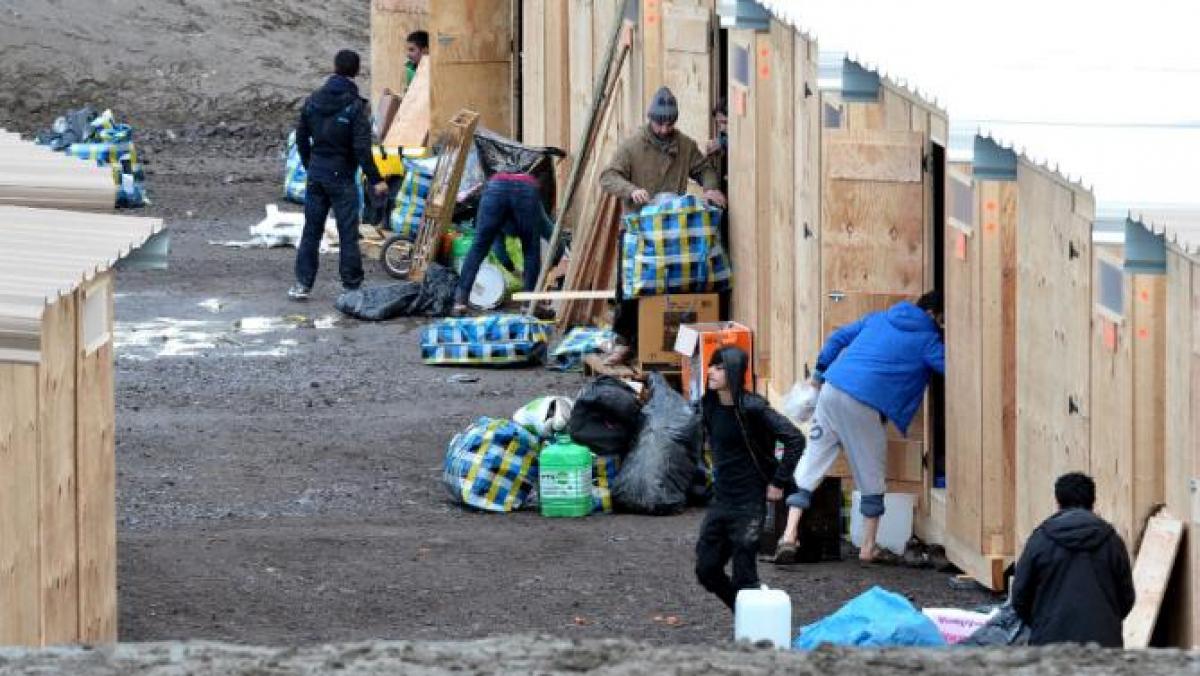Live
- GMR Airports Unveils AI-Powered Digital Twin Platform to Transform Airport Operations
- India poised to become leading maritime player: PM Modi
- Top Causes of Kidney Stones and How to Recognize Silent Symptoms
- India’s renewable energy capacity logs 14.2 pc growth at 213.7 GW
- Winter Session of Odisha Assembly adjourned sine die
- Biden calls Trump's tariff approach 'major mistake'
- After Drama Over Eknath Shinde’s Chief Minister Race, Maharashtra Cabinet Formation Faces New Tensions
- Egyptian FM, Blinken discuss recent developments in Syria
- Iran's supreme leader says Syria's developments result of US-Israeli 'plot'
- Elon Musk to Purchase $100 Million Luxury Mansion Next to Donald Trump's Mar-a-Lago, Report Reveals
Just In

France\'s first international-standard refugee camp opened on Monday despite opposition from Paris but the central government\'s local representative raised safety concerns that could suspend its operations.
France's first international-standard refugee camp opened on Monday despite opposition from Paris but the central government's local representative raised safety concerns that could suspend its operations.
Three families of Iraqi Kurds were the first to arrive at the new camp in Grande-Synthe near Dunkirk on the northern French coast. They came from another site nearby where around 1,000 people have been living in miserable conditions with limited protection from the cold.
The new camp, featuring some 200 heated wooden cabins and proper toilets and showers, has been built by Doctors Without Borders (MSF) with the support of the local town hall, despite opposition from the French government.
Grande-Synthe mayor Damien Careme had ignored advice from police and fire representatives and validated the security arrangements for the camp. However the government's local representative, prefect Jean-Francois Cordet, late Monday raised safety concerns that could halt operations.
Cordet had "ordered the mayor of Grande-Synthe to immediately cancel the municipal bylaw" which authorised the opening of the camp against the advice of the municipal safety commission, he said in a statement.
He ordered Careme to "without delay take measures to ensure the safety of the occupants, especially at night" to limit the risk of fire.
"The safety of people is at stake and one cannot disregard the rules, whatever the humanitarian motives," Cordet said.
Standoff continues
Careme, who fought a battle with the authorities over construction of the camp, earlier said: "The standoff continues" after the prefect first requested the organisation of a safety committee.
"I've overcome a failure of the state," he said, adding that he could no longer stand the sight of around 75 children living in the original camp.
The move has frustrated the government, which has been trying to move refugees away from the northern coast and into centres where their movement is more controlled.
"The government's policy is not to reconstitute a camp at Grande-Synthe, but to make it go away," Cordet said last month.
The new, 3.1 million euro ($3.4 million) migrant accommodation is thought to be the first in France to meet international standards, and MSF said it hoped soon to have 375 cabins, catering for 2,500 people.
Line of riot police
It lies around 40 kilometres (24 miles) from the largest refugee camp on the outskirts of Calais, nicknamed the "Jungle", which is being gradually demolished by the authorities.
A group of children tried to offer white roses to the line of riot police holding back migrants and volunteers as workers resumed the dismantling of makeshift shelters.
Thousands of migrants have been living in the Jungle and other smaller camps along the northern coast, desperate to reach Britain where many have family or community ties and see better hopes of gaining employment or education.
Most have turned down offers from the French government to move into heated containers alongside the Jungle, or into accommodation centres elsewhere in France, fearing doing so would end their dreams of reaching Britain.
Unlike these alternatives, the new camp at Grande-Synthe will not restrict the movement of migrants and refugees, MSF said.
Some two hectares (five acres) of the Jungle were destroyed last week, and authorities said it could take a month or more to demolish the southern half of the camp.
Local authorities say there were between 800 and 1,000 migrants living in the southern half, while aid groups say there were around 3,500.

© 2024 Hyderabad Media House Limited/The Hans India. All rights reserved. Powered by hocalwire.com







